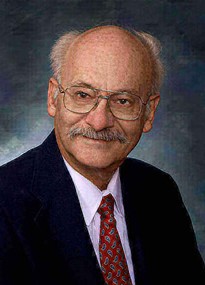-
(b.) -1936 November 16(d.)2008 June 10
Bio/Description
Born in Texarkana, Arkansas, he grew up in Dallas, Texas, and graduated Valedictorian from Jesuit High School in 1954. He studied Mathematics at Rice University, graduating Phi Beta Kappa in 1958. He earned a Ph.D. in Mathematics from Princeton University in 1962. He worked for Unisys Corporation (formerly Burroughs) in Pasadena, Detroit, France, England, and Mission Viejo until his retirement. He was described by colleagues in the computing industry as "a genius" and "the most brilliant mind" they had ever known. Operating systems for mainframes were his specialty, and he was the troubleshooter that other programmers would turn to when they couldn't fix flaws in their code. As Director of Software Research at Burroughs, he designed the pioneering B5000 compiler and operating systems, introducing generative techniques to Data Base Management. The first of the Burroughs large systems was the B5000. Designed in 1961, it was a second-generation computer using discrete transistor logic and magnetic core memory. The successor machines followed the hardware development trends to re-implement the architecture in new logic over the next 25 years, with the B5500, B6500, B5700, B6700, B7700, B6800, B7800, and finally the Burroughs A series. In 1986 he was made the very first Burroughs Fellow. He patented a number of software programs, such as one for the high speed emulation of arithmetic operations. He also authored several papers published in industry journals such as Communications of the Association for Computing Machinery. His interests were wide ranging, including the history of Revolutionary France and early 20th century France, topology, game theory, fractals, chaos theory, and natural history and the development and refinement of the theory of evolution.
-
Date of Birth:
1936 November 16 -
Date of Death:
2008 June 10 -
Noted For:
Designer of the pioneering Burroughs B5000 compiler and operating systems, introducing generative techniques to Data Base Management -
Category of Achievement:
-
More Info:


